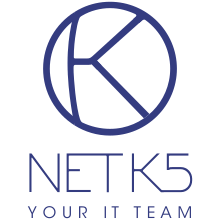
There are 6 Companies in China
that provide Help desk Services!
China’s tech sector has grown significantly in the past two decades and is making a challenge for the US to keep its long-standing position of the world leader. Companies like Huawei, WeChat, Baidu, Tencent, Qualcomm among others consolidate the country’s efforts in becoming the next-generation leader in tech worldwide.
Discover Top IT Companies in China specialized in Help desk and other related services. Find the best IT service providers for your projects.
For companies seeking efficient IT support, Help Desk services provide a central point of contact for resolving technology-related issues. These services are crucial for ensuring smooth operations within organizations, as they address technical problems and answer inquiries from users.
Handpicked companies • No obligation to hire • 100% risk-free
Explore Top Help desk Companies in China
Your bilingual IT partner in China: we provide IT solutions to international businesses operating in China.
Services:
IT Support in Shanghai and China. English Speaking IT Experts. We help Multi-national firms and expats solve diverse IT issues in China.
Founded in 2022 and headquartered in Foshan, Guangdong, China, Wisray Studio is a software development company serving the world.
RSM Stone Forest provides a comprehensive suite of business solutions to support your growth in Singapore and globally.
Filter Help desk Companies in China by Cities
Find the right tech company near you or from a specific city. Some of the best companies might be located in smaller cities.
Find more Help desk companies around the world
TechBehemoths is the world's most advanced and user-friendly platform to match IT Companies with real clients without hustle.
The Chinese Tech Industry: Companies and IT Industry Overview
China’s tech sector has grown significantly in the past two decades and is posing a challenge for the US to keep its long-standing position as the world leader. Companies like Huawei, WeChat, Baidu, Tencent, Qualcomm, among others, consolidate the country’s efforts in becoming the next-generation leader in tech worldwide. Lately, China and the US are battling for the 5G technology leadership, and the competition leads to an economic war that involves sanctions and restrictions for companies on both sides.
Mainly, there are three pillars of China’s tech sector growth: venture capital, innovation, and a distinct entrepreneurial culture. All these, with governmental support, managed to transform China from a mass manufacturer into a tech giant.
At the same time, Alessandro Cormio from Naturality states that China has a rapidly growing market for IT products and services, with a large and increasingly tech-savvy population. The Chinese government has invested heavily in developing its own tech industry, which has led to a vibrant and innovative tech ecosystem. However, there are also significant challenges. Chinese consumers have started to shift their preferences towards domestic brands, making it more difficult for foreign companies to gain a foothold in the market. In addition, habits and the market in general are very different to handle and develop when compared to the West. I always suggest NEVER trying to enter this market with the same strategy and approach as Western countries.
Why You Should Work With Chinese It Companies
As mentioned above, one of the three pillars of China’s tech sector is distinct entrepreneurship. In China, IT companies and businesses in general work differently from the traditional Western style. It’s about social digitalization, where companies don’t need direct human interaction anymore - everything can be done remotely. Even though freelancing is a very well-known practice in the West, Chinese IT companies use corporate freelancing, allowing professionals to focus on project tasks from different parts of the country.
Chinese companies don’t have any more language barriers when it comes to communication, and project management is at its highest. Tech specialists are doing their job properly and fulfilling the exact requirements and instructions mentioned by clients. Honestly, this is no surprise, since discipline is in the Chinese blood for centuries.
Another reason for working with Chinese IT companies may be an abundant workforce. While European and US markets mainly confront a workforce shortage, it’s not the same for Chinese companies, where tech specialists are struggling to get a place in an IT company.
What Should You Be Aware of When Working With Chinese IT Companies?
On the other hand, the government controls all business processes, especially with foreign clients and investors. As a potential client, you will meet certain bureaucratic barriers that will cut the business’s appetite. The number of papers that need to be signed overlaps several times, and the number of papers you need in Europe and the US. But after having everything done, all will go smoothly.
The prices may vary from region to region and company to company. It depends on how well a region or a company performs on the national level, which still remains the main indicator for Chinese IT companies in terms of notoriety. That is a good idea to be aware of what regions are likely to provide better services, and in which field.
To this answer, Alessandro Cormio adds that due to the very different market culture and habits of China, to better enter the market, companies need to be aware of how differently things work in China.
How Reliable Are Chinese IT Companies
The same thing we could say about reliability. Since the country has more than 15,000 IT companies, it wouldn’t be fair to rate all companies under the same figures. Companies located in more developed regions and cities perform better, are more reliable, and have a higher credibility rate, while other companies from less-developed regions and cities are nameless, and don’t have enough experience to rate their experience.
On the other hand, in China, a nameless company can become a world brand overnight. It depends on the product they are working on and the technologies used. Since innovation is the second Chinese tech pillar, any company can become famous, rich, or both if it uses the right combination.
How Does the Chinese IT Sector Relate to the Neighboring Countries?
The Chinese tech sector outnumbers all neighboring countries. However, in terms of general performance, it competes with the South Korean IT sector and the Japanese one. The internal market is enough for Chinese companies to grow and innovate, so, presumably, there is no big need for exporting IT services, like in the case of Korean and Japanese companies. However, contacting foreign entities empowers and stimulates the innovation processes in a country.
Chinese Business Environment: Complex But Rapidly Growing
China has a complex BUT rapidly evolving business environment. On one hand, it is the world's second-largest economy (projected to be NO. 1 in some years) with a rapidly growing consumer market. On the other hand, because of the significant state ownership and control, it turns out to be a challenging legal and regulatory environment. Working in marketing for Chinese companies looking to go overseas, it's also interesting to feel and understand the complexity and huge potential, on a scale, that this market has. China's rapid economic growth and expanding middle class offer significant opportunities for companies and talents willing to invest the time and resources to establish a strong presence in the market.
At the same time, the difficulty of opening a new IT company in China is appreciated as quite open, with wide possibilities, but it is getting more and more challenging.
How Does the Chinese Government Help the IT Sector?
While it's difficult to understand all subtleties and Chinese laws all of a sudden, Alessandro Cormio, the founder of Naturality Digital - a reputable IT company with offices in China, says that there are three main directions on this topic:
- Investment in research and development: AI and 5G on top of all.
- Support for entrepreneurship: Plenty of initiatives to support entrepreneurship and innovation, including tax incentives, funding for startups, and the establishment of innovation hubs and incubators.
- Encouragement of investment: establishment of special economic zones and other incentives to attract domestic and foreign companies.
Shenzhen and Shanghai - The Chinese Heaven for IT Companies
Shenzhen has been the fastest-growing city in the world in the last few years, and it keeps pushing forward. At the same time, Shanghai is the most populous and international city in China.
Alessandro considers that both should definitely be considered among the top cities in the world for IT development.
About the Chinese Local Talent Pool
Not too easy to answer this question. From my point of view, there's still a lack of people with high skills in certain things. Too many tend to specialize too much and follow a specific standard, not beneficial to flexibility and creativity.
This article was created together with Alessandro Cormio, the Co-Founder of Naturality Digital, which is one of the leading digital marketing agencies with offices in Italy, Switzerland, and China.
What is Help desk and what are its benefits for your projects?
For companies seeking efficient IT support, Help Desk services provide a central point of contact for resolving technology-related issues. These services are crucial for ensuring smooth operations within organizations, as they address technical problems and answer inquiries from users.
There are lots of IT companies that specialize in providing Help Desk services, employing teams of skilled technicians and support professionals who are well-versed in resolving a wide range of IT issues. The largest companies providing help desk services count ServiceNow, Zendesk, and Atlassian's Jira Service Management. But smaller and more affordable companies can be found on the current page
Reliability is a key factor for Help Desk service providers. These companies are typically equipped with the necessary resources, expertise, and infrastructure to provide timely and effective support. However, reliability also depends on factors such as the company's experience, the competency of their support staff, and the quality of their service level agreements (SLAs).
Help Desk service providers use various tools and technologies to streamline support operations, including ticketing systems for issue tracking, remote desktop software for troubleshooting, knowledge bases for self-help resources, and customer relationship management (CRM) software for managing user interactions. Additionally, they often employ chatbots and AI-driven automation to enhance response times and efficiency.
Help Desk services are closely related to various IT support and management services, including:
-
IT Service Management (ITSM): Comprehensive solutions for managing IT services and infrastructure.
-
Managed IT Services: Outsourced IT support and management for businesses.
-
On-Site Support: Physical presence for addressing complex technical issues.
-
Remote IT Support: Remote troubleshooting and issue resolution.
-
IT Consulting: Strategic guidance for technology decision-making.
Choosing the Best IT Companies Providing Help Desk Services: Selecting the right IT company for Help Desk services involves evaluating factors such as their experience, support capabilities, adherence to industry standards, and the scalability of their solutions. Look for providers that align with your organization's specific support needs and budget constraints. Additionally, consider their responsiveness and willingness to tailor services to your requirements.
Help Desk providers are essential for various projects, including:
-
Establishing IT Support: Setting up a Help Desk service for the first time within an organization.
-
Expanding Support: Scaling support operations to accommodate a growing user base.
-
Technical Issue Resolution: Addressing critical incidents and reducing downtime.
-
IT System Deployments: Providing support during technology rollouts and migrations.
-
User Training: Offering training and guidance on technology usage.
Companies across industries can benefit from Help Desk services, including:
-
Small and Medium-sized Enterprises (SMEs): Seeking cost-effective IT support without in-house IT teams.
-
Large Enterprises: Managing complex IT ecosystems and extensive user bases.
-
Service Providers: Offering technical support as part of their service packages.
-
Education Institutions: Supporting faculty, staff, and students with technology issues.
-
Healthcare Providers: Ensuring uninterrupted access to critical medical systems.
-
E-commerce Businesses: Maintaining online store functionality and resolving customer issues.
Other Relevant Information for Help Desk Service Seekers: The cost of Help Desk services can vary significantly depending on factors such as the level of support required, the complexity of the IT environment, and the number of users. Costs are typically based on a per-user or per-device subscription model. In the US, prices can range from $20 to $100 per user per month or more, with additional costs for on-site support or extended hours of coverage. Costs in the UK and Australia may follow similar ranges but can also vary due to market conditions and service providers' offerings. It's essential to discuss pricing and SLAs with Help Desk service providers to ensure that the chosen plan aligns with your organization's needs and budget.





